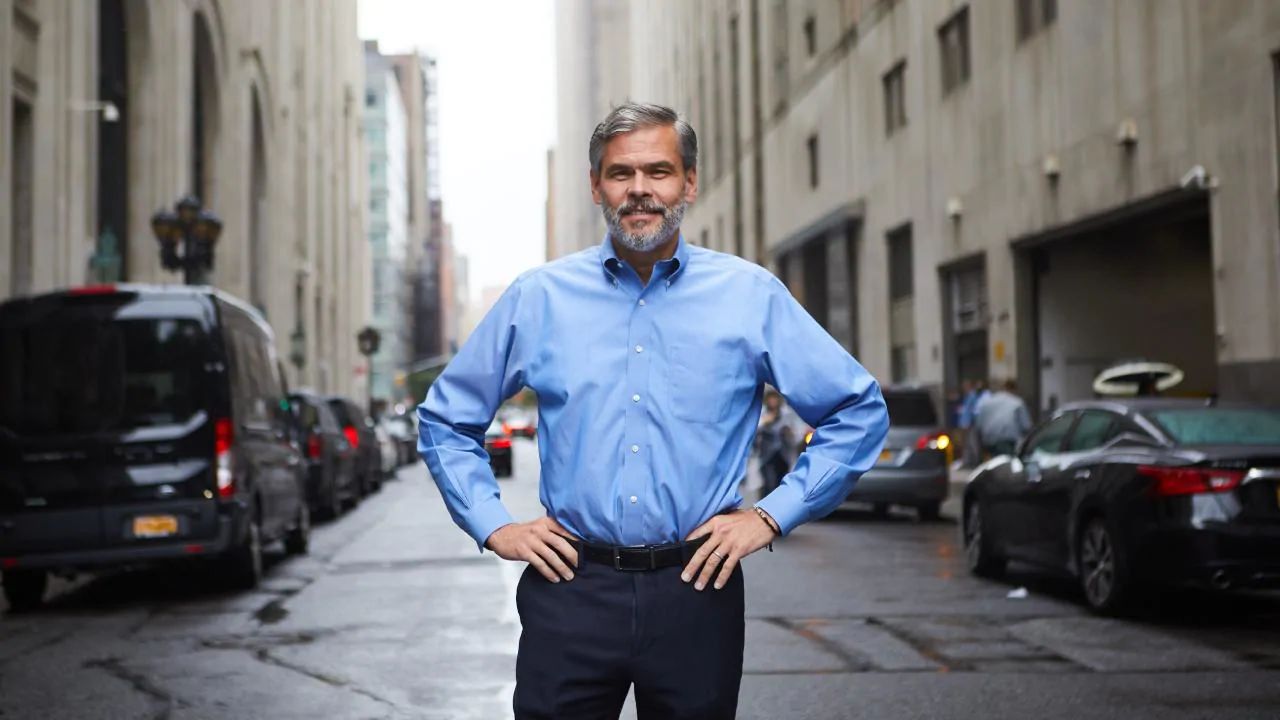|
Weekend Australian
Cameron Stewart, Washington Correspondent
Saturday, September 15, 2018
Ken Umezaki can never shake the memory of that moment, 10 years ago today, when the chilling news arrived. Lehman Brothers, his employer of 20 years and a Wall Street institution, had declared to the world it was bankrupt. "For all of us, our biggest fear was realised on that day," he recalls. "I mean, our parent company had just announced the biggest bankruptcy in the history of mankind. Financial markets were in turmoil. This was a very big deal."
Yet even Umezaki and his fellow managers at Lehman couldn't have fully anticipated what the collapse of America's oldest investment bank would usher in for the world, including Australia. The collapse of Lehman on September 15, 2008 was a seminal moment in global finance. It was the most dramatic day of the global financial crisis, triggering the worst monthly decline in Wall Street's history and reshaping forever the landscape of American finance.
The bank declared $US639 billion in assets and $US619bn in debts, making it the largest bankruptcy filing in US history.
Like most of Lehman's 25,000 employees, Umezaki, a general manager of the firm's asset management division, was praying for a miracle until the end. He expected that either the US government or a corporate white knight would swoop in and save the company, which was mired in debt from excessive exposure to the subprime mortgage crisis.
To Lehman employees — and to the world — the bank seemed too big, too important, too seminal to fail.
"We all knew we were in survival mode," Umezaki tells The Weekend Australian in an interview in New York. "The rumours were rampant that Lehman was in trouble. But even so, I don't think we expected we would be signing a bankruptcy letter on that day."
In the end, the government turned its back on a bailout of Lehman, and its last two potential suitors, Barclays and Bank of America, chose not to save it. At 10pm on Sunday, September 14, Lehman's chief executive, Richard Fuld, realised he had run out of options. He leaned back in his chair on the 31st floor of Lehman's 7th Avenue headquarters and said to his executives, "I guess this is goodbye." Four hours later, in the early hours of Monday morning (US time) Lehman filed for bankruptcy, triggering pandemonium on Wall Street and across world markets.
For Umezaki, who was then 44, it was a bizarre feeling because his Lehman business division — asset management — was healthy and was not broke. "We weren't told to go home on that day," he recalls. "We actually had a business to run. Our focus was to make sure that our people and our business ended up with a new home."
|
Yet many Lehman employees had anticipated the worst on the Sunday as word spread that a rescue by either the government, Barclays or Bank of America was unlikely. Hundreds of them raced to the bank's headquarters near Times Square, cleared their desks and left the building carrying boxes and walking past lines of journalists and television cameras.
Mo Grimeh, the then head of emerging markets at Lehman, told Business Insider that the drama began late on the Sunday afternoon. "That's where the panic reached a peak," he said. "If the bank was going to file for bankruptcy, we wouldn't be able to enter the building on Monday morning. That's really the reason everybody headed back to 745 7th Avenue to collect whatever personal items they might have."
Grimeh said the trading floor was packed but people were not working. "Some were crying. Some were drinking beer. Some were doing shots of tequila. Most of them were smoking. There was total chaos," he recalled. "I just saw a lot of people packing boxes, taking pictures of their families, clients' business cards. The girls were just packing boxes and boxes of shoes. I discovered that most females tend to have multiple pairs of shoes under their desks. I had no idea until that day."
For many Lehman employees there was nowhere to turn in the months immediately after the collapse. Financial market experts were hardly the flavour of the month as the aftershocks continued to rattle world markets. For some, such as Umezaki, whose division at Lehman had done nothing wrong, the collapse changed the course of his life.
He had worked for Lehman for 20 years and had loved everything about the firm. "There was a great group of people, a great underdog culture because we were always the smallest, not the biggest (investment bank), so we felt we had to work harder and we did build a great organisation," Umezaki says. He and his Lehman colleagues even formed a band called The 5th of Bourbon, playing gigs and entertaining bank clients around New York.
After the bankruptcy, Umezaki stayed with his division and helped to shepherd it into a management buyout nine months later. But then he walked away from it all, turning his back on 25 years as a Wall Street financier. "When I graduated from college I wanted to be a maths teacher at a high school, but I couldn't get a job so I ended up on Wall Street," he says. "So when Lehman collapsed I thought, 'I am an accidental trader anyway, so why don't I push the pause button and see what I want to do next?' "
Lehman was gone but his band, The 5th of Bourbon, played on, so Umazeki decided to pursue his passion and try his luck in the music industry. For the past nine years he has been a business investor and adviser to music start-ups and heads his own company, Digital Daruma. He still plays bass for his Lehman alumni band but says he has no plans to return to Wall Street. "I don't really miss the market,'' Umazeki says. "I miss the people sometimes, but not the market."
Altomonte, now 51, says the collapse of Lehman shook him and he decided to take a break from the finance industry. "I mean, at that stage people were wondering if the whole financial system was going to collapse," he says. "There was one bank after the next that was just teetering on the brink and I just wanted out." But two years later, he returned to the industry and is now working with financial services giant Credit Suisse.
Many of Lehman's employees eventually re-entered financial markets and many are now running hedge funds or have other high-profile jobs on Wall Street. Several of them declined to be interviewed for this article, saying they were reluctant to revisit such a difficult and emotional time.
The demise of Lehman and the financial crisis ushered in a new, more regulated Wall Street to prevent a repeat of the cowboy investments that precipitated the trouble. But Altomonte says a part of him still misses the unregulated freewheeling spirit at Lehman. "These days everything is so regulated, there is so much governance and you have to jump through so many hoops to get things done," he says.
"At Lehman in those days, whatever needed to get done got done; money was no issue; you didn't have to go through 10 approval meetings. You could see all the benefits of what you were doing first-hand and rapidly."
Then he adds: "Maybe that was part of the problem."
** End of article

